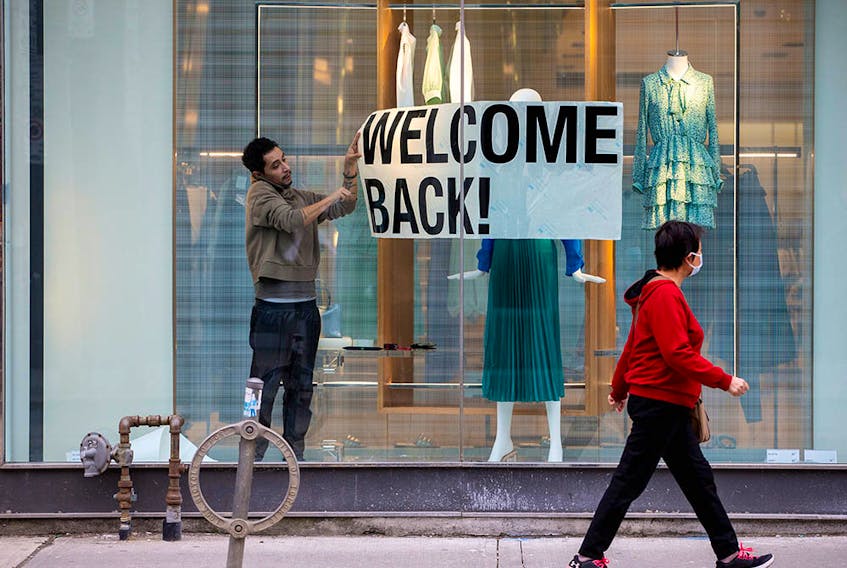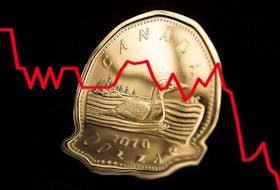Q: This was supposed to be the year my boyfriend and I got our finances on track. We had made a pact that we’d keep each other accountable so by the time we get married next year, we’d have our debts paid off. We started out doing OK until I had to fly home in March because my dad’s health took a turn for the worse. While I was away the borders closed and by the time I got back, my job was gone. My boyfriend kept working and thankfully could cover our bills because he was spending so much less during the lockdown. I’ve recently found a new job and we’ve been able to stick with spending less on almost everything. It’s a good feeling getting back in control of our money. We’re worried, though, that we’ll go back to spending the way we used to as our life becomes more normal. What can we do? ~Anna
A: There are a lot of things many of us learned during the pandemic about our money habits. For those whose incomes stayed mostly the same, many found extra opportunities to save, or even help those who needed additional support. If your income was drastically reduced, you likely learned what you wanted to change about your money habits once you were back on your feet. And for people who managed to mostly get by with government income and support programs, they realized what their essential expenses truly were. A common theme throughout this time, however, was that many of us developed new money habits that would be worth maintaining over the coming months and years.
The trick will be finding ways to keep up with our new habits and not fall back into old traps. As you start spending again, be conscious of some of the money traps that could have been inadvertently keeping you in debt. Once you know what to watch for, it will be easier to steer yourself toward success.
Here are four money habits that don’t always look like traps, but can wreak havoc on your bank account and cause big bills:
1. Giving in to retail therapy
As the economy recovers and you want to return to your more normal life, it will be very tempting to restart your spending. Retailers will promote enticing offers and it will be hard to escape the thought that you might be missing out on a really great deal. However, resist the urge to give in to retail therapy , both in person and online.
To motivate yourself for long-term success with your financial goals, incorporate a little of what you really want into your budget. If you’re also paying off debt , you might need to start with small wants. This is easier to do right now with our choices for spending still somewhat restricted. For instance, the vacation of your dreams likely isn’t possible right now, so start by budgeting for a holiday you can afford.
As you pay your debts off, there’s more room in your budget to afford more of the things you really want. To help yourself stay motivated, reward yourself a little along the way. Then before you know it, you’ll be debt free and on to choices in line with goals for a financially stable future.
2. Committing to long-term contracts when life is in transition
When your circumstances are in the midst of change, that is not the time to make long-term commitments. Transition times in life can happen when we least expect them, and COVID-19 has brought on some of the most significant changes many people will ever face.
There are certain times, however, when we can expect change, and not all changes are bad. When we’re between jobs, moving homes, starting a family or going back to school, these can be exciting times of change — but excitement and stress can tempt us to create order and settle ourselves into a routine with a new fitness membership, leased vehicle or cellphone contract, for instance.
Given that we face many unanticipated changes in our lives, read the fine print when making a long-term financial commitment. Know what it would cost to break a contract and weigh your options. Sometimes a slightly higher month-to-month arrangement or a loan versus a lease gets you ahead in the long run.
3. Participating in expensive hobbies
Do you have hobbies you really enjoy? Maybe they’re a social outlet, provide you with exercise and a way to de-stress, or they could be a creative outlet. Sometimes we have family hobbies that involve costly equipment, travel, or come with accommodation expenses. The money we spend on hobbies has likely been left in our bank account or spent on other essentials during the pandemic, so now is a great time to consider options and see if there’s a cheaper way to go. For example:
● Instead of a gym membership, maybe you can get your exercise outdoors or virtually from home.
● If your kids normally participate in a variety of activities, consider what they missed most during the lockdown and only spend on those lessons or classes.
● Could you rent what you need for recreation, e.g., a truck, trailer, boat, jet skis or snowmobiles, rather than make payments on vehicles and pay for their storage, upkeep and insurance?
While hobbies might feel like a necessity, we usually have flexibility in how we do them. Evaluate your choices with your goals in mind and calculator in hand. With a period of time behind us where our normal activities were put on hold, it’s easier to only go back to what we genuinely enjoyed and now want to spend money on.
How to Decide If You Can Afford Another Payment or Not
4. Paying off debt too fast
You might be tempted to pay off your debts as fast as possible, but paying them off too fast could keep you broke. It makes sense to pay off debt, especially high-interest credit card debt. However, spending on debt payments without setting money aside for emergencies means that when something unexpected happens, you need to reach for credit to pay for it. One big car repair bill could wipe out months of extra payments to your credit cards in one swipe.
Rather than aggressively paying off your car loan, for instance, a wiser strategy is to pay it off as quickly as you reasonably can within a balanced approach; let your budget be your guide.
Balance might include accelerated payments , e.g., biweekly rather than monthly. It might mean making small top-ups to payments, even accelerated ones, by decreasing discretionary spending. For instance, you might reduce how often you eat out to come up with an extra $20 or $50 biweekly that can be paid toward your debts. Or it could mean using lump sums of money, e.g., part of a tax refund or bonus from work, to make periodic payments against the principal. Check with your lender to see what your options are, but car loans generally allow extra payments at any time.
Preparation is the key to success
Have you ever heard that preparation is the secret to success? Think of a diet — if you’ve ever been on one, when hunger hits and you’ve got nothing ready to eat, that’s when you’re most likely to cheat. The same is true for your money. When an urge to spend hits or an emergency expense needs to be paid for, if you don’t have a plan for where the money will come from, you’re likely to grab whatever is available. With unexpected expenses, it’s unfortunately usually a credit card. Relying on credit to make ends meet rather than on your own savings is a money trap that will keep you broke.
The way to escape this cycle of debt is to spend less on day-to-day expenses than you earn, and the pandemic has shown many of us how we can do that. If you’re not sure how much to set aside, start with whatever you can afford. Draw up a budget to firm up your numbers and then set aside money according to your plan.
Then utilize strategies that make saving easier . For instance, you can set up automatic transfers through your online banking on payday to stash away a predetermined amount of cash before you get a chance to spend it. Out of sight, out of mind. Ensure that you have a separate savings account or two set up to hold onto your savings. If you leave it in your chequing account, it’s bound to disappear. To keep your saved money safe from yourself , ask your financial institution to remove the savings accounts from your debit card.
The bottom line on sticking with good money habits
If how you’ve been managing your money until now has kept you broke and hasn’t helped you reach your goals, try something new. Question each purchase you make. Comb through your household bills to ensure they meet your needs and that you’re getting good value for what you’re spending. Switch up your routine to continually force yourself to do things differently. Improve your money skills and knowledge of personal finances by reading blogs, books or asking qualified professionals. Then, instead of trying to figure out how to make ends meet, stick with what might be the most valuable outcome of the pandemic: work towards having fewer ends.
Related reading:
Clean Up and Declutter Your Finances
A Simple Way to Keep Track of Your Money
8 Common Money Mistakes That Can Keep You Broke
Scott Hannah is president of the Credit Counselling Society, a non-profit organization. For more information about managing your money or debt, contact Scott by email , check nomoredebts.org or call 1-888-527-8999.
Copyright Postmedia Network Inc., 2020









